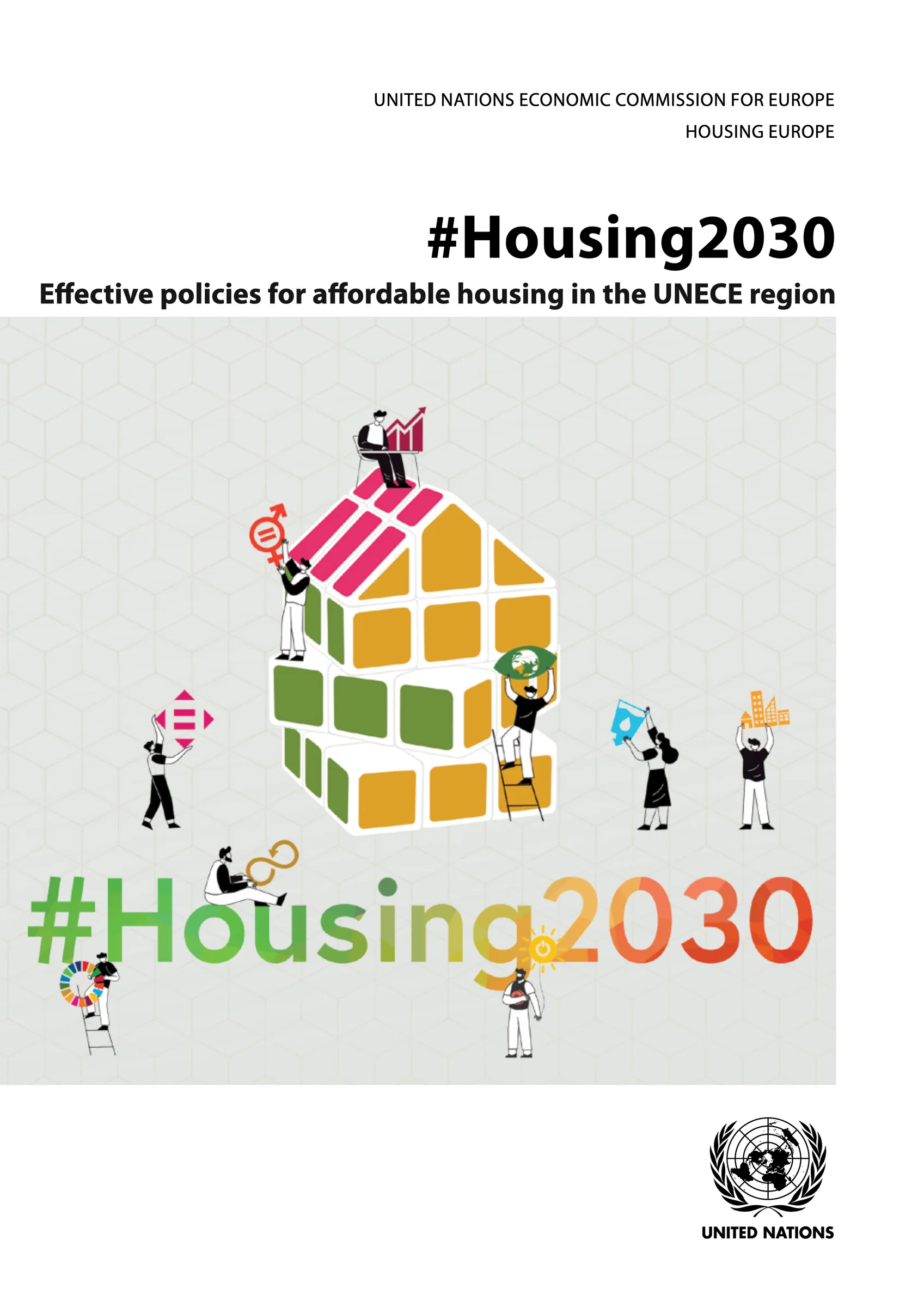Context and Publisher
The document titled "#Housing2030: Effective policies for affordable housing in the UNECE region" was published by the United Nations Economic Commission for Europe (UNECE) in Geneva in 2021. This publication addresses the critical issue of housing affordability, particularly for low and middle-income individuals in the UNECE region, where over 100 million people spend more than 40% of their disposable income on housing costs. The authors, including Julie Lawson and Michelle Norris, emphasize that housing affordability is a fundamental component of the right to adequate housing, which remains a challenge for vulnerable groups like young people, seniors, and large families.
Housing Affordability Challenges
The publication outlines that rapid urbanization, financialization of the housing sector, and the ongoing effects of the COVID-19 pandemic have exacerbated housing affordability issues. Many middle-income earners, especially in large cities, face skyrocketing rents and low-quality housing options. The document highlights the urgency of addressing these challenges to achieve Sustainable Development Goals (SDGs), particularly Goal 1 on poverty eradication and Goal 11 on sustainable cities.
Key Findings and Topics
The study discusses four main topics essential for improving housing affordability: governance and regulation, access to finance and funding, land access for housing construction, and climate-neutral housing construction and renovation. It advocates for cooperation among governments, housing experts, and providers to share best practices and enhance housing policies across the region.
Effective Policy Tools
The report introduces a toolkit of policy approaches rather than a one-size-fits-all blueprint. It emphasizes the need for tailored strategies that consider local contexts and the unique drivers of housing affordability. Policymakers are encouraged to utilize various governance tools, including strategic frameworks, institutional capacity, multi-level governance, and tenant involvement frameworks, to create inclusive and sustainable housing systems.
Investment and Financing
Investment in affordable housing is crucial, and the report outlines various financial tools to promote affordable housing, including regulating financial institutions, subsidizing rents, and leveraging public loans and grants. It stresses the importance of integrating financial support with effective land policies to ensure adequate housing supply.
Climate-Neutral Housing
The publication also addresses the importance of climate-neutral housing and the tools available to promote sustainable construction and renovation practices. By combining regulatory and non-regulatory initiatives, financial incentives, and training, policymakers can work towards achieving both affordable and environmentally sustainable housing solutions.
Conclusion
In conclusion, "#Housing2030" serves as a comprehensive resource for policymakers and housing experts, aiming to support the development of effective strategies for affordable housing in the UNECE region. By highlighting the interconnectedness of governance, finance, land policy, and climate neutrality, the report provides actionable insights to promote sustainable housing solutions for all.
